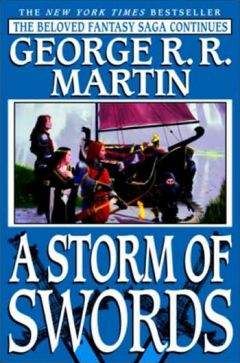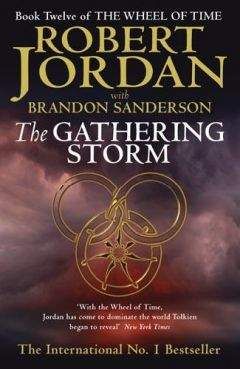He was on his third cup and half the night was gone before Pod finally returned, with the sellsword knight in tow. “I hope the boy had a damn good reason dragging me out of Chataya’s,” Bronn said as he seated himself.
“Chataya’s?” Tyrion said, annoyed.
“It’s good to be a knight. No more looking for the cheaper brothels down the street.” Bronn grinned. “Now it’s Alayaya and Marei in the same featherbed, with Ser Bronn in the middle.”
Tyrion had to bite back his annoyance. Bronn had as much right to bed Alayaya as any other man, but still . . . I never touched her, much as I wanted to, but Bronn could not know that. He should have kept his cock out of her. He dare not visit Chataya’s himself. If he did, Cersei would see that his father heard of it, and ’Yaya would suffer more than a whipping. He’d sent the girl a necklace of silver and jade and a pair of matching bracelets by way of apology, but other than that . . .
This is fruitless. “There is a singer who calls himself Symon Silver Tongue,” Tyrion said wearily, pushing his guilt aside. “He plays for Lady Tanda’s daughter sometimes.”
“What of him?”
Kill him, he might have said, but the man had done nothing but sing a few songs. And fill Shae’s sweet head with visions of doves and dancing bears. “Find him,” he said instead. “Find him before someone else does.”
She was grubbing for vegetables in a dead man’s garden when she heard the singing.
Arya stiffened, still as stone, listening, the three stringy carrots in her hand suddenly forgotten. She thought of the Bloody Mummers and Roose Bolton’s men, and a shiver of fear went down her back. It’s not fair, not when we finally found the Trident, not when we thought we were almost safe.
Only why would the Mummers be singing?
The song came drifting up the river from somewhere beyond the little rise to the east. “Off to Gulltown to see the fair maid, heigh-ho, heigh-ho . . .”
Arya rose, carrots dangling from her hand. It sounded like the singer was coming up the river road. Over among the cabbages, Hot Pie had heard it too, to judge by the look on his face. Gendry had gone to sleep in the shade of the burned cottage, and was past hearing anything.
“I’ll steal a sweet kiss with the point of my blade, heigh-ho, heigh-ho.” She thought she heard a woodharp too, beneath the soft rush of the river.
“Do you hear?” Hot Pie asked in a hoarse whisper, as he hugged an armful of cabbages. “Someone’s coming.”
“Go wake Gendry,” Arya told him. “Just shake him by the shoulder, don’t make a lot of noise.” Gendry was easy to wake, unlike Hot Pie, who needed to be kicked and shouted at.
“I’ll make her my love and we’ll rest in the shade, heigh-ho, heigh-ho.” The song swelled louder with every word.
Hot Pie opened his arms. The cabbages fell to the ground with soft thumps. “We have to hide.”
Where? The burned cottage and its overgrown garden stood hard beside the banks of the Trident. There were a few willows growing along the river’s edge and reed beds in the muddy shallows beyond, but most of the ground hereabouts was painfully open. I knew we should never have left the woods, she thought. They’d been so hungry, though, and the garden had been too much a temptation. The bread and cheese they had stolen from Harrenhal had given out six days ago, back in the thick of the woods. “Take Gendry and the horses behind the cottage,” she decided. There was part of one wall still standing, big enough, maybe, to conceal two boys and three horses. If the horses don’t whinny, and that singer doesn’t come poking around the garden.
“What about you?”
“I’ll hide by the tree. He’s probably alone. If he bothers me, I’ll kill him. Go!”
Hot Pie went, and Arya dropped her carrots and drew the stolen sword from over her shoulder. She had strapped the sheath across her back; the longsword was made for a man grown, and it bumped against the ground when she wore it on her hip. It’s too heavy besides, she thought, missing Needle the way she did every time she took this clumsy thing in her hand. But it was a sword and she could kill with it, that was enough.
Lightfoot, she moved to the big old willow that grew beside the bend in the road and went to one knee in the grass and mud, within the veil of trailing branches. You old gods, she prayed as the singer’s voice grew louder, you tree gods, hide me, and make him go past. Then a horse whickered, and the song broke off suddenly. He’s heard, she knew, but maybe he’s alone, or if he’s not, maybe they’ll be as scared of us as we are of them.
“Did you hear that?” a man’s voice said. “There’s something behind that wall, I would say.”
“Aye,” replied a second voice, deeper. “What do you think it might be, Archer?”
Two, then. Arya bit her lip. She could not see them from where she knelt, on account of the willow. But she could hear.
“A bear.” A third voice, or the first one again?
“A lot of meat on a bear,” the deep voice said. “A lot of fat as well, in fall. Good to eat, if it’s cooked up right.”
“Could be a wolf. Maybe a lion.”
“With four feet, you think? Or two?”
“Makes no matter. Does it?”
“Not so I know. Archer, what do you mean to do with all them arrows?”
“Drop a few shafts over the wall. Whatever’s hiding back there will come out quick enough, watch and see.”
“What if it’s some honest man back there, though? Or some poor woman with a little babe at her breast?”
“An honest man would come out and show us his face. Only an outlaw would skulk and hide.”
“Aye, that’s so. Go on and loose your shafts, then.”
Arya sprang to her feet. “Don’t!” She showed them her sword. There were three, she saw. Only three. Syrio could fight more than three, and she had Hot Pie and Gendry to stand with her, maybe. But they’re boys, and these are men.
They were men afoot, travel-stained and mud-specked. She knew the singer by the woodharp he cradled against his jerkin, as a mother might cradle a babe. A small man, fifty from the look of him, he had a big mouth, a sharp nose, and thinning brown hair. His faded greens were mended here and there with old leather patches, and he wore a brace of throwing knives on his hip and a woodman’s axe slung across his back.
The man beside him stood a good foot taller, and had the look of a soldier. A longsword and dirk hung from his studded leather belt, rows of overlapping steel rings were sewn onto his shirt, and his head was covered by a black iron halfhelm shaped like a cone. He had bad teeth and a bushy brown beard, but it was his hooded yellow cloak that drew the eye. Thick and heavy, stained here with grass and there with blood, frayed along the bottom and patched with deerskin on the right shoulder, the greatcloak gave the big man the look of some huge yellow bird.
The last of the three was a youth as skinny as his longbow, if not quite as tall. Red-haired and freckled, he wore a studded brigantine, high boots, fingerless leather gloves, and a quiver on his back. His arrows were fletched with grey goose feathers, and six of them stood in the ground before him, like a little fence.
The three men looked at her, standing there in the road with her blade in hand. Then the singer idly plucked a string. “Boy,” he said, “put up that sword now, unless you’re wanting to be hurt. It’s too big for you, lad, and besides, Anguy here could put three shafts through you before you could hope to reach us.”
“He could not,” Arya said, “and I’m a girl.”
“So you are.” The singer bowed. “My pardons.”
“You go on down the road. Just walk right past here, and you keep on singing, so we’ll know where you are. Go away and leave us be and I won’t kill you.”
The freckle-faced archer laughed. “Lem, she won’t kill us, did you hear?”
“I heard,” said Lem, the big soldier with the deep voice.
“Child,” said the singer, “put up that sword, and we’ll take you to a safe place and get some food in that belly. There are wolves in these parts, and lions, and worse things. No place for a little girl to be wandering alone.”
“She’s not alone.” Gendry rode out from behind the cottage wall, and behind him Hot Pie, leading her horse. In his chainmail shirt with a sword in his hand, Gendry looked almost a man grown, and dangerous. Hot Pie looked like Hot Pie. “Do like she says, and leave us be,” warned Gendry.
“Two and three,” the singer counted, “and is that all of you? And horses too, lovely horses. Where did you steal them?”
“They’re ours.” Arya watched them carefully. The singer kept distracting her with his talk, but it was the archer who was the danger. If he should pull an arrow from the ground . . .
“Will you give us your names like honest men?” the singer asked the boys.
“I’m Hot Pie,” Hot Pie said at once.
“Aye, and good for you.” The man smiled. “It’s not every day I meet a lad with such a tasty name. And what would your friends be called, Mutton Chop and Squab?”
Gendry scowled down from his saddle. “Why should I tell you my name? I haven’t heard yours.”
“Well, as to that, I’m Tom of Sevenstreams, but Tom Sevenstrings is what they call me, or Tom o’ Sevens. This great lout with the brown teeth is Lem, short for Lemoncloak. It’s yellow, you see, and Lem’s a sour sort. And young fellow me lad over there is Anguy, or Archer as we like to call him.”
“Now who are you?” demanded Lem, in the deep voice that Arya had heard through the branches of the willow.
She was not about to give up her true name as easy as that. “Squab, if you want,” she said. “I don’t care.”
The big man laughed. “A squab with a sword,” he said. “Now there’s something you don’t often see.”
“I’m the Bull,” said Gendry, taking his lead from Arya. She could not blame him for preferring Bull to Mutton Chop.
Tom Sevenstrings strummed his harp. “Hot Pie, Squab, and the Bull. Escaped from Lord Bolton’s kitchen, did you?”
“How did you know?” Arya demanded, uneasy.
“You bear his sigil on your chest, little one.”
She had forgotten that for an instant. Beneath her cloak, she still wore her fine page’s doublet, with the flayed man of the Dreadfort sewn on her breast. “Don’t call me little one!”
“Why not?” said Lem. “You’re little enough.”
“I’m bigger than I was. I’m not a child.” Children didn’t kill people, and she had.
“I can see that, Squab. You’re none of you children, not if you were Bolton’s.”
“We never were.” Hot Pie never knew when to keep quiet. “We were at Harrenhal before he came, that’s all.”




